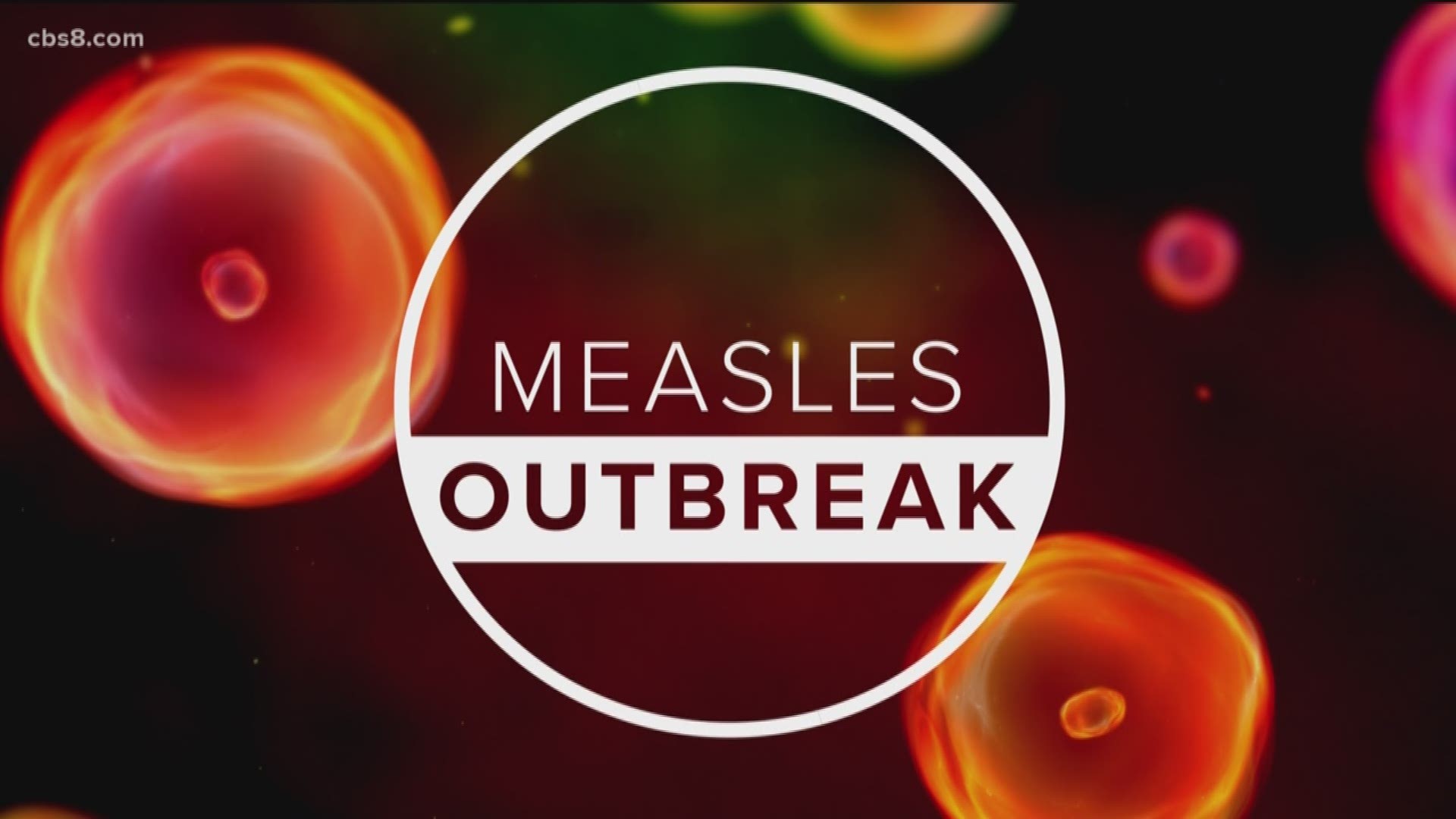DES MOINES, Iowa — The CDC has issued a health advisory in response to a rise in measles cases across the U.S.
This year alone, there have already been 58 confirmed cases across 17 states, matching the total number of cases reported in 2023.
Currently, there are no reported cases in Iowa, however, neighboring Illinois, Minnesota and Missouri all reported cases.
According to pediatrician Dr. Mustafa Eldadah at MercyOne, measles is a viral infection that is highly contagious.
It can cause severe health complications like pneumonia and brain inflammation, or in extreme cases, even death.
"It's a very highly contagious viral infection that can be spread in the community in a quick way,” Eldadah said. “But I would add one more thing to it: It's also a preventable disease, or preventable infection. The prevention is simply with vaccination."
Eldadah said measles cases typically start with a fever and cough and sometimes an eye infection or conjunctivitis.
Because those symptoms mimic other respiratory tract infections, he said it might not always seem like measles at first.
However, within a day or two, a person might begin to have spots or lesions inside the mouth and then within a few days, an external rash.
Eldadah said once that rash arrives, the person has already been contagious and could have spread the infection.
In 2000, measles was considered an eliminated disease, due to most Americans being vaccinated against the disease. The CDC believes the recent uptick in cases is likely linked to a lower vaccination rate.
"At some point, especially when the COVID epidemic happened, many individuals stopped going to their doctor office to get vaccine,” Eldadah said. “So, there's some drop in the immunization rate nationwide. And that's why I would say it put us more at risk."
Vaccination is the number one way to prevent measles.
Doctors recommend children receive their first dose of the measles-mumps-rubella vaccination at 12 to 15 months, or at age 6 months if they will be traveling internationally.
A second dose is then recommended between ages 4 and 6.
Eldadah said if parents have any questions about the MMR vaccine, they should seek out answers from their doctor, as he encourages all kids who can get the vaccine to do so.
According to the CDC, one person infected with measles can infect 9 out of 10 unvaccinated people.
93 percent of cases this year have been linked to international travel and most cases were reported as being children 12 months and older who are unvaccinated.

